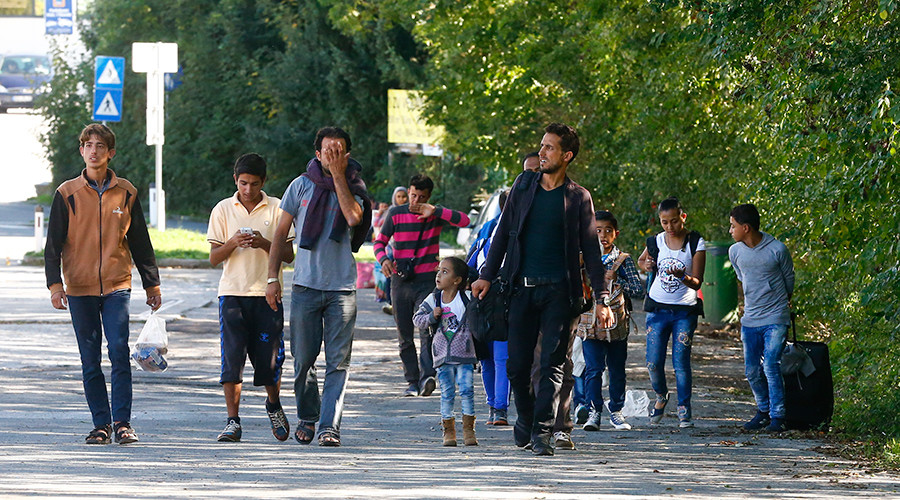5 EU countries now opposed to reckless migration
© Massimo Pinca / Reuters
Hungarian Prime Minister Viktor Orban has said that illegal immigrants in Italy must be deported back to Africa instead of relocated to other places in Europe and that Hungary is willing to help with the process.
Orban was speaking during a press conference following a meeting with Italian Interior Minister Matteo Salvini, who has come under fire in recent days for refusing to allow more than 100 African migrants to disembark from a boat docked in Catania.
Last Wednesday, the crew of the Diciotti rescued 190 migrants from an overloaded boat about 15 nm off the island of Lampedusa. 13 individuals needed emergency treatment and were medevaced to shore, but 177 remained on board.
Aid group Medecines sans Frontieres reports that 27 minors have been allowed to disembark from the Italian Coast Guard cutter Diciotti, which was temporarily banned from port by its own government last week. About 150 survivors remain on board the vessel, which is alongside at the port of Catania, and Italy is attempting to negotiate with other EU states to persuade them to take them in.
They are not having much success at getting other EU countries to take them, although those countries have no problem criticizing Salvini for standing firm. Salvini is also getting criticism from within his own government and judicial system which is now investigating whether or not they can charge Salvini with some crime.
Orban, earlier today called Salvini his hero!
Asked whether migrants should be relocated from Italy to other EU countries, Orban said that they should be sent back home.
“We should send them back instead of relocating them,” he said, adding that anything else would mean “the human smugglers have won” and “immigrants would keep coming in further waves”.
Orban said that illegal migration was the most important issue facing the European Union and said that Hungary was “attacked” by Brussels because the country had shown that it was possible that migrants could be stopped on land, referring to the fence built at Hungary’s border with Serbia and Croatia.
It was possible, Orban said, for Salvini to prove that migrants could “also be stopped at sea.” He called on Salvini not to “retreat” and promised assistance from Hungary to help Italy protect its borders. “Europe’s security hinges on his [Salvini’s] success,” he said.
Mariann Őry
@otmarianna
#Orban: We are ready to help #Italy to deport back migrants to #Africa. Take them back home, instead of relocating them. #OrbanSalvini
Orban said that Brussels’ policies on migration, particularly those driven from Germany, France and Spain, were aimed at “better management” of the influx of migrants, while the Visegrad group - which is made up of Hungary, Poland, Slovakia and the Czech Republic - wants to stop illegal migration fully.
Earlier in the day, other top officials from Italy's ruling coalition said that EU funds to Hungary should be stopped because it had not responded to Italy's "request for help" in relocating migrants.
Mariann Őry
@otmarianna
#Orban: I told #Salvini that migrants who arrived in Europe should be taken back. Brussels elite says it's not possible but I'm convinced we only need political will. I wish much success and are thankful for your support. #OrbanSalvini
Salvini described the meeting with Orban as one in a “long series of meetings to change the destiny of Europe” and said the two countries were “close to a historic breakthrough on a continental level”.
Both Orban and Salvini have angered Brussels with their anti-migrant rhetoric and refusal to cooperate with EU demands.
Orban has referred to migrants in Europe as “Muslim invaders” who he said are not true refugees, while Salvini has said he is prepared to be arrested in his defence of Italy’s borders.









